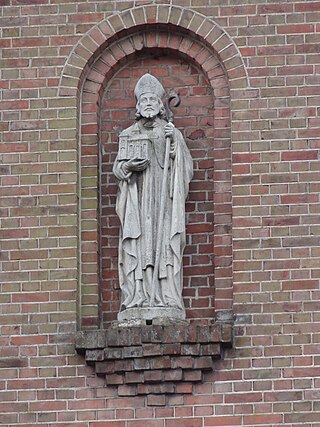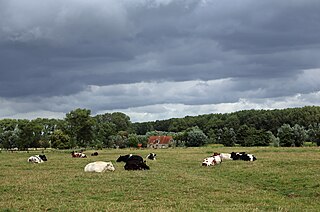O'Hanlon's notes
John O'Hanlon discusses Chuniald in his Lives of the Irish saints (1873). He notes that no special record exists of the acts of Saint Rupert's companions, Saints Chuniald and Gislar, if any such existed. Many writers refer to them as companions of Saint Rupert during his missionary career in Germany, so it may be assumed they were born in Ireland around the middle of the 7th century. However some, including the Hollandist Father Constantine Suyskens, thought that Rupert, Chuniald and Gisilar were natives of Gaul. Radler states that although the three were sent from eastern France to convert the Norici, they all were born in ancient Scotia or Hibernia. In 773 or 774 the relics of the saints were transferred to a church dedicated to Rupert in Salzburg. The relics were transferred again in 993 and 1315, but Chuniald is not mentioned in reports of the later transfers.

Saint Valentine was a 3rd-century Roman saint, commemorated in Western Christianity on February 14 and in Eastern Orthodoxy on July 6. From the High Middle Ages, his feast day has been associated with a tradition of courtly love. He is also a patron saint of Terni, epilepsy and beekeepers. Saint Valentine was a clergyman – either a priest or a bishop – in the Roman Empire who ministered to persecuted Christians. He was martyred and his body buried on the Via Flaminia on February 14, which has been observed as the Feast of Saint Valentine since at least the eighth century.

Rupert of Salzburg was Bishop of Worms as well as the first Bishop of Salzburg and abbot of St. Peter's Abbey in Salzburg. He was a contemporary of the Frankish king Childebert III. Rupert is venerated as a saint in the Roman Catholic and Eastern Orthodox churches. Rupert is also patron saint of the Austrian state of Salzburg.

June 19 - Eastern Orthodox Church calendar - June 21

Saint Mansuetus was the first Bishop of Toul.

Plechelm,, is honoured in both the Catholic Church and the Old Catholic Church as a patron saint of the Netherlands.

Saint Macculind was an early Irish saint who was abbot and / or bishop of Lusk.

Saint Mochoemoc was an early Irish abbot, later considered to have been a saint. He was a nephew of Saint Íte of Killeedy, who raised him. He became a monk in Bangor Abbey under the abbot Saint Comgall of Bangor. He was the founding abbot of Liath-Mochoemoc (Liathmore) monastery. His feast day is 13 March.
Saint Fiachna was an early Irish monk who was venerated as a saint. His feast day is 29 April.
Erlulph was a Scottish missionary and 10th Bishop of Verden who was martyred by pagans in Germany. His feast day is 10 February.
Saint Damhnade was an Irish virgin who was known for working miracles. She is sometimes confused with Saint Dymphna. Her feast day is 13 June. Very little else is known of her.
Saint Fiodhairle Ua Suanaigh was an Irish abbot who was considered to be a saint. His feast day is 1 October.

Saint Osmanna was said to be a virgin of Irish royal origin who lived alone in the woods near the mouth of the Loire in France, performed many miracles of healing, and came to be considered a saint. Her story may have little basis in fact. Her feast day is 9 September.

Saint Werenfried was an English Benedictine monk, priest and missionary among the Frisians. His intercession is thought to relieve the pain of arthritis and to help gardeners. His feast day is 14 August.

Saint Fredigand of Deurne was an 8th-century Irish missionary in the territory around Antwerp in what is now Belgium. His feast day is 17 July.

Saint Trésain was an Irish missionary in France. His feast day is 7 February.
Saint Tochumra was a holy virgin, or possibly two virgins, in medieval Ireland. Her feast day is 11 June.

Saint Guthagon was a possibly Irish hermit who lived in Belgium, most likely in the 8th century, and became venerated as a saint.

Saint Gerebern was an Irish priest who baptized Saint Dymphna when she was a child. He was her companion when she fled to Belgium, where he was murdered beside her. His relics were taken to Sonsbeck in Germany, where they were an object of pilgrimage until they were destroyed during World War II. His feast day is 15 May.
Saint Augulus was a 3rd or 4th century bishop and martyr in a town called Augusta in Britain, or perhaps in Normandy. He was possibly Irish in origin. Little is known about him, but his feast day is given as 7 February.

Saint Syra of Troyes was an Irish woman, sister of Saint Fiacre, who became a nun in France and died in Meaux but came to be venerated in Troyes. Her story has been conflated with that of a woman named Syria who died in Troyes in the 4th or 5th century. Her feast day is 8 June.
This page is based on this
Wikipedia article Text is available under the
CC BY-SA 4.0 license; additional terms may apply.
Images, videos and audio are available under their respective licenses.
 This article incorporates text from this source, which is in the public domain.
This article incorporates text from this source, which is in the public domain. This article incorporates text from this source, which is in the public domain.
This article incorporates text from this source, which is in the public domain.












